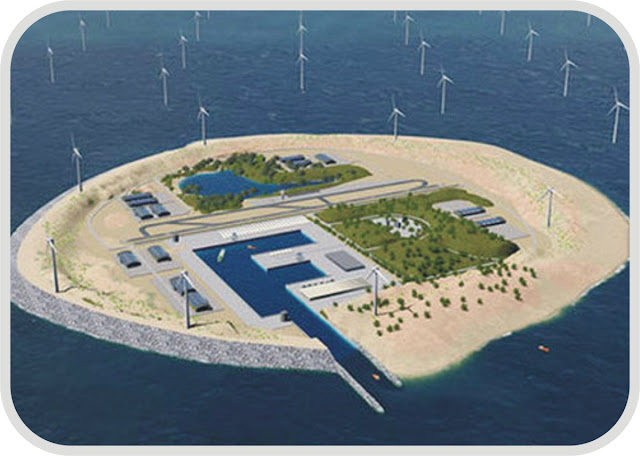Efforts are being put in place to create an artificial
island off the UK coast which would be able to supply parts Europe with
renewable energy.
The following are countries that would benefit from the
project upon its completion: Britain, Denmark, Germany, The Netherlands, Norway
and Belgium. The man-made island would host several wind turbines and solar
panels and act as an energy centre of the continent.
The project is said to be proposal made by a group of energy
firms from the Netherlands, Denmark, and Germany. And it is expected to cost
£1.1 billion, and also rubber stamped by Brussels on March 23.
The project which is to occupy 25 square mile island is
going to accommodate a small workforce and feature roads, workshops, trees and
a man-made lake with a beach.
Sea and airports which accommodate tankers, a control tower
and terminal are also going to be built together with the 7,000 wind turbine.
It is believed that by 2050 hubs would be put to used says
Energinet, a Danish state-owned energy grid operator.
According to Torben Glar Nielsen, Energinet technical
director: “Maybe it sounds a bit crazy and science fiction-like but an Island
on Dogger Bank could make the wind power of the future a lot cheaper and more
effective.”
Positioned 62 miles off the coast of Hull on Dogger Bank,
the site is thought to keep costs low as it is comparatively shallow with
depths varying from 15 to 36 metres.
Interestingly, it has been announced that the moment the
island becomes ready for use over 80 million people would have their homes
powered. Again, the project is intended to meet the target set by the Europe to
reduce the release of carbon dioxide emissions.
Energinet said: “Wind and solar energy complement each
other: there is more sun from spring to autumn, and more wind in the colder and
darker months of the year.
“So a sustainable and stable energy system for the future
will need solar and wind energy, both on a large scale.
“This requires optimum cooperation and synergy because it
cannot be accomplished by individual member states alone.”
Dogger Bank provided an ideal location as it had optimal
wind conditions, it centrally located and is in shallow waters, they said.
They added: “Staff, components and assembly workshops can be
stationed on the island, thus optimising and simplifying complex offshore
logistics.”
The firm behind the North Sea Wind Power Hub are expected to
sign a deal on March 23 in the presence of European Energy Union Commissioner,
Maos Sefcovic.











No comments:
Write comments